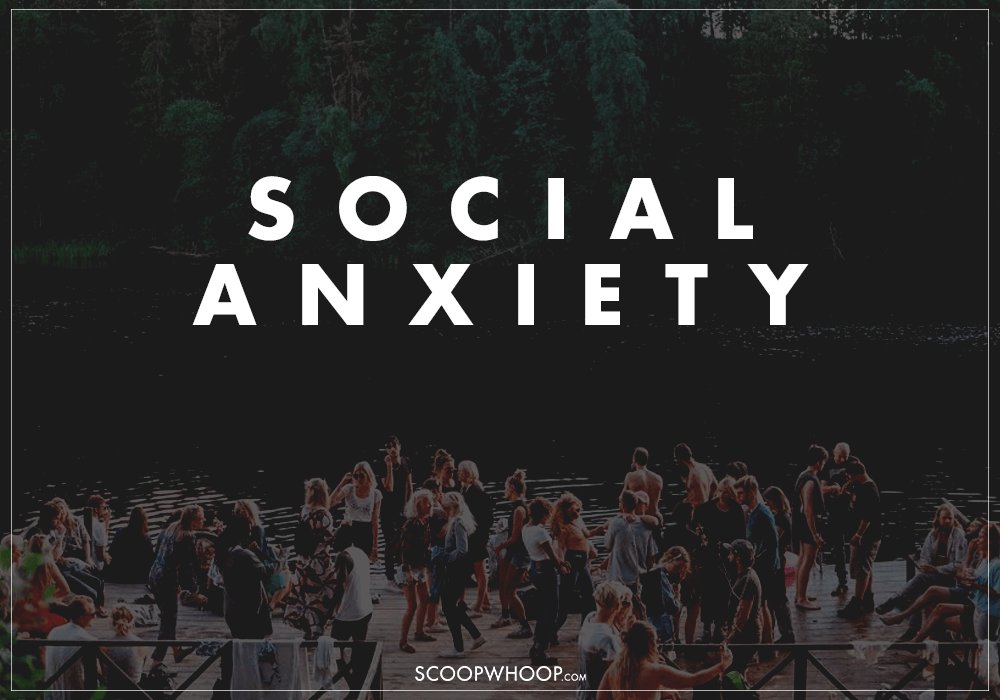I stared at the ceiling of my room for an hour, the other day. The fan, with a white backdrop, kept revolving, making endless number of circles while I felt like my heart was drowning in a sea of insecurities leaving shivers of pain behind. Have you felt like that, ever? Have you felt like the moment you leave your space, your comfort zone, you’d lose everything you’ve ever had? Insecurities are like quicksand that can make you feel highly under-confident and destroy who you are as a person.

Melanie Greenberg, a practicing psychologist and author of several books, recently wrote about the lack of self-confidence for Psychology Today and highlighted three main reasons for it. Fortunately, there are a few simple ways to overcome these problems but to practice them correctly, we need to figure out the root cause of why we are feeling the way we do.
Type 1:

According to studies, 40% of our ‘happiness quotient’ is based on recent life events. Try to recollect the last time you were unhappy. You probably ended a relationship (which is the biggest negative contributor to happiness), lost a job, weren’t feeling healthy enough to go about your day or lost someone close to you. Low self-esteem stems from unhappiness, failure and rejection which in turn fills us with negativity about ourselves.
We have all felt this way at some point or the other. The way we deal with such situations determines how strong we really can become. Greenberg, very tactfully, quoted the example of Abraham Lincoln. She says,
Before becoming President, Abraham Lincoln lost his job, was defeated for nomination to Congress, and failed at least twice in Senate bids. Persevering, despite setbacks can lead to eventual successes—which raise your self-esteem.
How to beat it:
- Take some time off to heal and adapt to new situations.
- Make a list of all the things that interest you and follow them.
- Find comfort in family and friends. Staying alone can aggravate the insecurities within you.
- Talk to the people you trust. It’s therapeutic.
- Keep at it and don’t give up. See this as an opportunity to focus entirely on your goals.
- Stay open to even more failure and adopt new strategies as you go.
Type 2:

It is hard to believe how common social anxiety is. We constantly worry what others might think of us while we are in a social gathering. Remember the time when it’s your first day in a new office and everyone seems so intimidating that it’s hard for you not only to speak a word but also, be yourself. This is especially hard if you have been bullied as a kid or had a parent who’d push you too hard to be successful. Greenberg says,
This type of insecurity is generally based on distorted beliefs about your self-worth and about the extent to which other people are evaluating you. Most of the time, people are more focused on how they are coming across, than on judging others. Those who do judge and exclude are often covering up insecurities of their own and so their opinions may be less than accurate; they may value superficial attributes instead of character and integrity.
How to beat it:
- Talk back to your inner critic and remind yourself of all the reasons that make you awesome.
- Stand in front of a mirror and talk about current events and yourself. Preparing in advance will boost your confidence.
- Face your fear. Go to a party, attend events and engage with people. If you do this enough number of times, you’ll eventually become more comfortable.
- Try to talk to at least one new person every day and ask a lot of questions.
- You can learn a lot by observing your surroundings. Focus on others’ behaviour and skills to combat intense self-focus.
Type 3:

The hunger to be at the top can be really bad for your mental and physical health but, some of us, push ourselves way too hard. Some cannot have anything less than perfect and for others, it could be a case of a critical boss or a major scarcity of jobs. Either ways, we start blaming ourselves for things that go wrong and this ultimately results in low self-esteem.
Beating up yourself and constantly worrying about not being good enough can lead to depression and anxiety, eating disorders, or chronic fatigue.
How to beat it:
- Focus on how much efforts you’re putting in instead of the outcome.
- Simplify. Observe the time and energy you’re devoting to a particular task and if that extra effort is even having any impact on the final product.
- Be more compassionate towards yourself. Evaluate your circumstances and zero down your takeaways from the task at hand.
- Get rid of conditional self-esteem. This is when you like yourself when you’re at the top and dislike yourself when you’re not.
The thing is whenever you feel insecure about yourself, open your box of achievements, read the old entries of your journal (if you keep one), work out for a bit (exercise releases a feel good hormone) and understand that we have absolutely zero control over life. If you want to rise, you will.
Designs by Disha Bhanot.

















